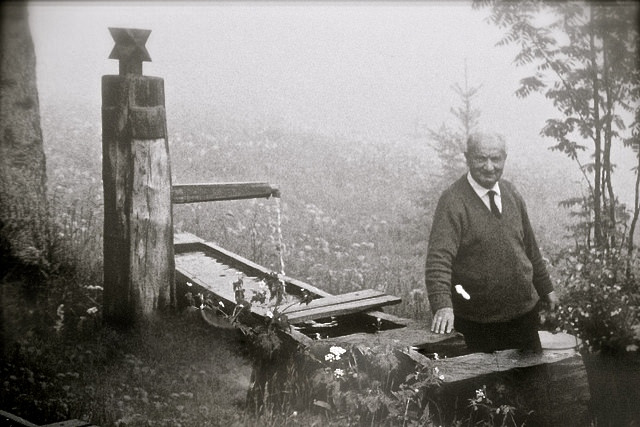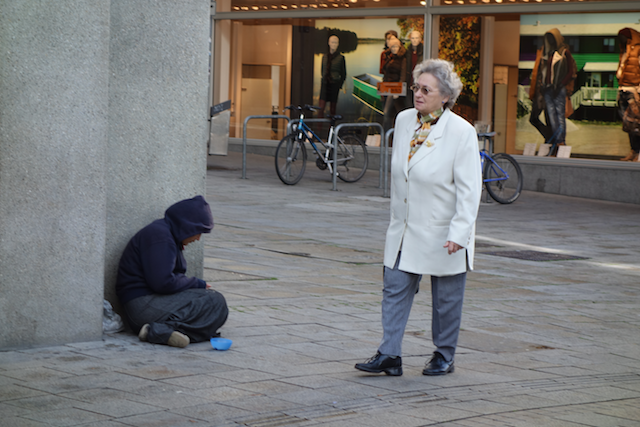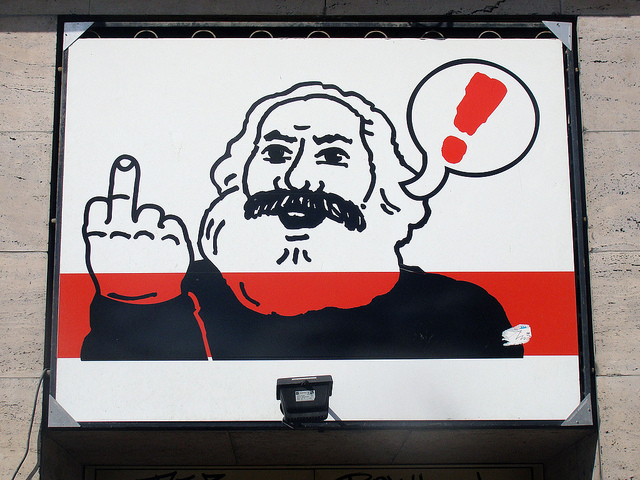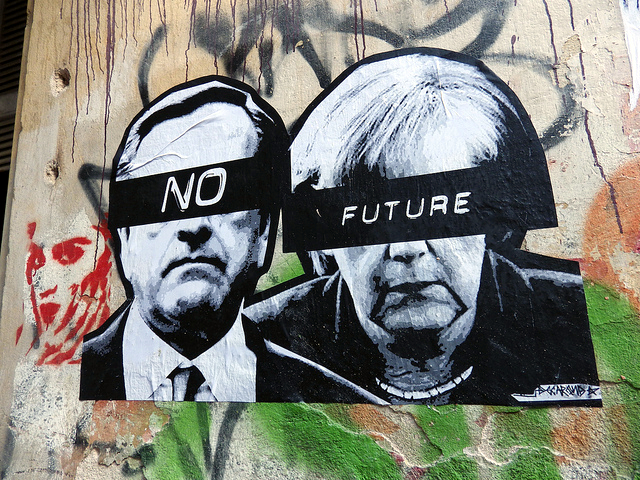Germany’s biggest tabloid has been roundly criticized for publishing an op-ed decrying Islam as a barrier to integration. Bild editor-in-chief Kai Diekmann has since apologized for the article, penned by Bild am Sonntag vice editor-in-chief Nicolaus Fest. But not before his polemic helped reinvigorate German Islamopobia, and renewing anxiety about diversity in Europe. (More…)
Reads
Two months ago, I set up an email alert for “UK Ministry of Defense.” Just to keep an eye on what my old chums are up to. I was expecting to have blogs, articles and reports of military activities – drone strikes, deployments, the usual catalog of daily military fuck-ups and the like – appearing in my inbox every day. (More…)
This is a peculiar moment in American culture. Slavery doesn’t trouble the psyche of this country in normal times. Although it was a key element on which much of the wealth of the United States was once based, the history of slavery is typically viewed as the prehistory of the Emancipation Proclamation. But a spate of recent publications has pushed the issue to a new level of prominence. (More…)
It’s a shame Washington Post film critic Ann Hornaday expressed her ideas so inelegantly, because the relationship between entertainment and a culture of misogyny bear scrutiny. After all, the ghastly Isla Vista shootings have generated several public discussions about gun violence and regulation, mental illness, and in particular misogyny. (More…)
In a review of Emmanuel Faye’s 2004 book Heidegger: The Introduction of Nazism into Philosophy, Harvard historian Peter Gordon wrote of the tendency of philosophy to trouble the public sphere “only when some outrage calls the very legitimacy of philosophy into question.” This specter has once again arisen with the publication of notebooks kept by the Martin Heidegger (the so-called Schwarze Hefte) between 1931 and 1938. (More…)
The publication of Capital in the Twenty-First Century, by French economist Thomas Piketty, has come at a crucial moment. In the US, there have been suggestions from the White House that income inequality is a matter of concern. Europe today has become a sort of mad scientist’s laboratory in which defunct theories from the past (austerity, the gold standard, German hegemony) are redeployed in the hope that they’ll work better this time around. (More…)
Perceptions of the crisis in Ukraine have been driven by the media. The Western press has taken a guardedly positive line toward the protestors in Maidan Square, constructing the flirtations of the Ukrainian opposition with NATO and the EU as simple struggles for freedom and the rule of law, mostly ignoring the neo-fascist presence in the movement. (More…)
In May 1903, a group of Serbian army officers fired their way into the royal palace in Belgrade. King Alexander, the scion of the Obrenović dynasty, was discovered with his wife Draga, hiding in a closet. Tricked into revealing themselves, they were hacked to death, and their partially eviscerated bodies were flung out a window. The plotters then paused for a celebratory cigarette. (More…)
Edward Snowden’s NSA revelations are the biggest journalistic event in the past decade, and certainly the most important US leak since the Pentagon Papers. They have exposed practices that have been judged to be government privacy boards to be illegal, and by courts as an affront to the Constitution. And they have demonstrated that large amounts of state surveillance in the post 9/11 era have nothing to do with terrorism. (More…)
Biographical writing can seem futile. This is true in a trivial sense, because on the surface, history is always shaped by the present. One of the best measures of a historian is their ability to recognize this influence, and to correct for it. Biographies are particularly subject to this limitation. Especially those of controversial political figures. (More…)
Greece has taken on the characteristics of a matinee horror show. Like other states on Europe’s periphery, the postwar success story been transformed into a mad laboratory, where technocrats experiment with the importation of disaster capitalism into the EU. You’d be forgiven for thinking it was Germany in the early 1930s, or Chile in the 1970s. (More…)











